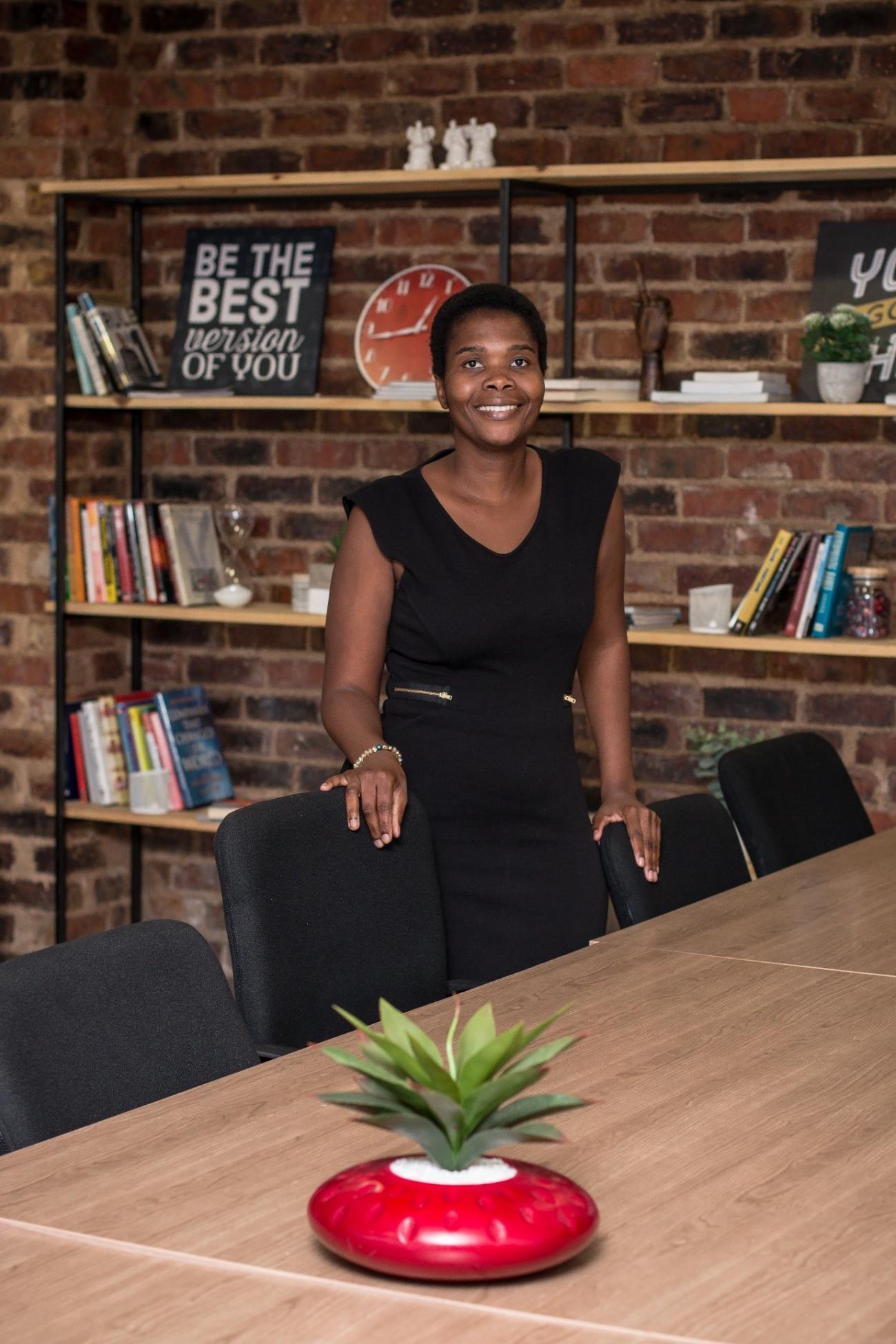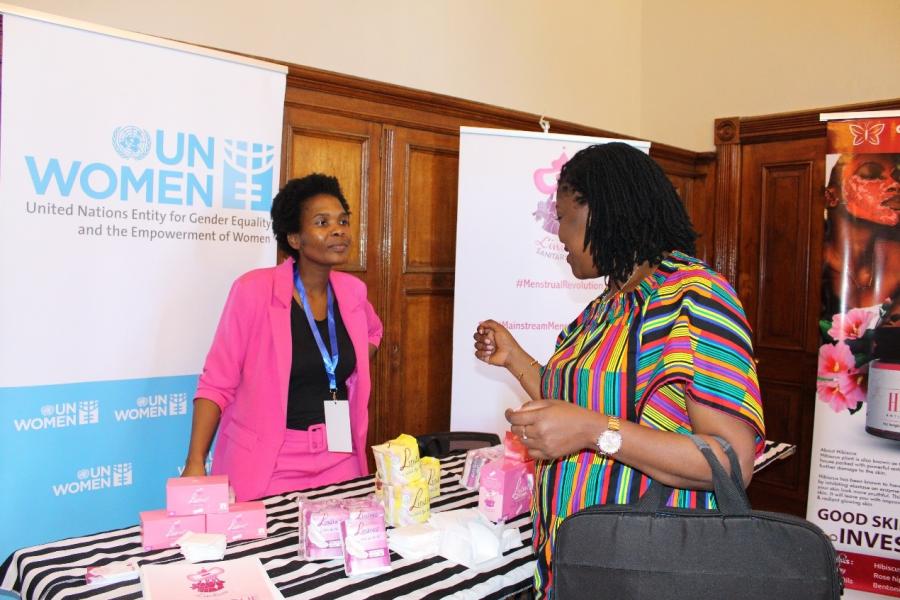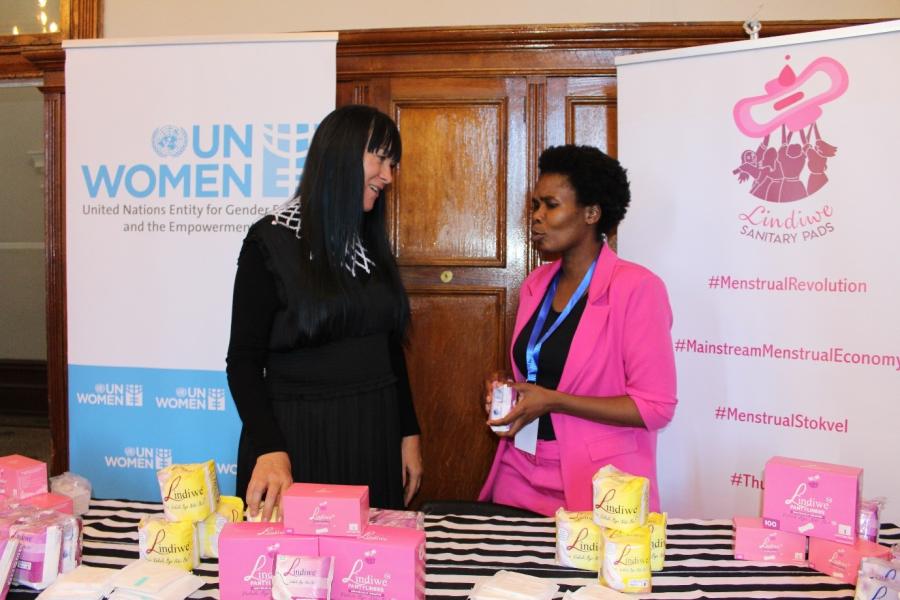Women owning the ‘menstrual economy’: South African entrepreneur changing lives through a thriving sanitary pads manufacturing venture

In 2022 alone Lindiwe Sanitary Pads reached 10 000 girls, supplying them with a year’s supply of sanitary pads through the government’s programme.
Over the past few years, there have been concerted efforts to lift the veil on the taboo and stigma around menstrual hygiene. Not only have there been calls for sanitary products to be freely available but there have been conversations around who owns the means of production of these essential products.
Lindiwe Nkuna-Kgopa, 40, started thinking about putting her ring in the hat of what she calls the menstrual economy in 2015 after following these conversations and realized that in South Africa there were no women-owned, large-scale, manufacturers of sanitary products that can compete with the big suppliers. This was the start of Lindiwe Sanitary Pads which today not only sells to individual customers but supplies the South African government’s National Sanitary Dignity Programme in four provinces. In 2022 alone Lindiwe Sanitary Pads reached 10 000 girls, supplying them with a year’s supply of sanitary pads through the government’s programme, combatting period poverty.
“When I started Lindiwe Sanitary Pads I felt it was unfair that women are only end-users of sanitary pads and decided we needed to be active in the menstrual economy. We need to be part of the entire value chain. Menstruation is a huge economy and it’s interesting that with all the taboos and stigma that have existed around menstruation, when it comes to the boardroom where the rands and cents are counted, suddenly men can talk about periods and get involved in the manufacturing and selling of pads,” says Nkuna-Kgopa.
“Initially when I approached funders they’d turn down my applications because they said I didn’t have a manufacturing background. I had never even set foot in a factory! So they’d said ‘you don’t have the technical know-how. You are unbankable!’’ she says. An entrepreneur at heart, having previously dabbled in marketing and accounting, Nkuna-Kgopa took the rejection in her stride and decided to build the profile of a reputable sanitary pads manufacturer. When Lindiwe Sanitary pads started in 2018 the business focused on branding, packaging, and distributing sanitary pads purchased from an external manufacturer.
But what the entrepreneur quickly learned is that being product-ready and having greater access to markets is costly and requires knowledge. UN Women South Africa Multi-Country Office (SAMCO), supported by NAMA Women Advancement, implemented a series of business coaching and mentoring workshops that equipped Nkuna-Kgopa and other businesswomen with the essential skills for running profitable and sustainable businesses. She is also one of the entrepreneurs on UN Women’s Buy From Women platform, which links clients who want to procure from women-owned entrepreneurs with such suppliers.

“The process for getting your product ready, running it through the necessary tests, and meeting potential big clients is quite expensive. For example, traveling to meet a potential big client in Cape Town, at your own expense, is quite demanding. That’s why the programs run by UN Women for women entrepreneurs are invaluable. They trained us then put us in spaces where we can create linkages with market-potentials and eventually take advantage ,’’ says Nkuna-Kgopa.
She was one of the women entrepreneurs sponsored by UN Women SAMCO through NAMA Women Advancement’s support, to attend the Africa Women in Trade Conference and Expo in Cape Town in 2022. This is where Nkuna-Kgopa met a contact who introduced her to a major client that not only bought a large supply of Lindiwe Sanitary Pads products but will also be pushing out the products into the rest of the African continent. Additionally, the contact enabled her to meet clients who took an interest in the business and provided letters of intent that have unlocked funding for Lindiwe Sanitary Pads to build a 3 500sqm factory.

Additionally, her business is in the process of procuring what will be South Africa’s second-largest sanitary pads manufacturing machine which will produce 850 units per minute. Lindiwe Sanitary Pads currently employs 92 women in its peak seasons and 16 women in the quieter production periods. Nkuna-Kgopa highlights that automating the manufacturing process will not kill these jobs but grow the company’s output and revenue, allowing these women to be more securely and sustainably employed in other areas of the company. The machine is much-needed as the business expands its reach from supplying wholesalers and independent pharmacies to supplying two major retailers ’house brands.
UN Women SAMCO has partnered with the South Africa Department of Women, Youth, and People with Disabilities to enhance the capacity of women-owned enterprises in the Sanitary Dignity value chain. The Sanitary Dignity Implementation Framework (SDIF) aims to ensure dignified menstruation management while promoting women’s economic empowerment.







